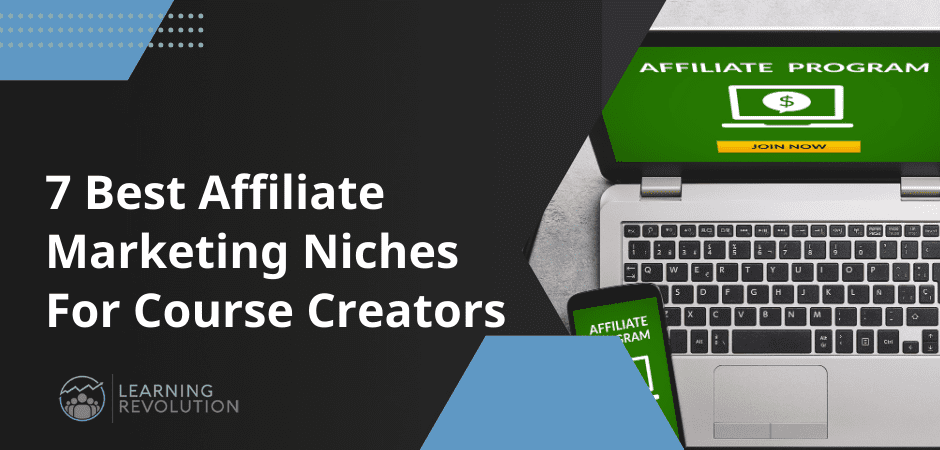

Do you want or need to generate additional revenue while you get your course up and running.
Would you like to significantly increase the revenue potential from each course you sell?
Or, do you simply need to figure out additional ways to make money right now?
If you answered “Yes,” to any or all of these questions, you’ll definitely want to read about the three income streams I cover in this post.
Each can be used as a standalone way – i.e., separate from your courses – to generate revenue.
But, each can also be incorporated into your courses to help significantly boost the revenue potential of each course sale.
Here they are:
1. Expert Networks
“Expert network” sites offer an online marketplace for experts to sell their insights and advice at an as-needed basis, usually at an hourly rate. Generally, I’m not a fan of this sort of “piece work” – particularly on a money-for-time basis, but I’ve found some of these services can make the process so efficient – even fairly scalable – that a certain amount of selling expertise on an hourly basis can be attractive.
There are a number of expert networks out there. At some point I may dedicate an entire post to them, but for now I’ll focus on the one I know best, and which seems to be leading the market at this point: Clarity.fm. (I list a few others at the end of this section.)
Getting set-up on Clarity is easy and doesn’t cost anything. First you create a standard member account. This allows you to set up basic profile information about yourself. Then you apply to be an “expert” on the platform. Once approved, you are able to create expertise listings and indicate the topics on which you can provide advice. Here’s mine (though I am not currently taking calls).


Prospective customers can find you when searching on Clarity.fm for help with a topic you have expertise in. When you book a call, Clarity handles time-tracking and collection of payment from your customer and takes a 15% fee.
You can – and should – also promote your Clarity-based services on your Web site – and, you should consider promoting Clarity time in your course as a way to enhance and customize the learning experience.
One of the big “pros” of Clarity is that you can get up and running very quickly. Also, the interaction that you have with customers on Clarity can be invaluable in helping you determine and shape your course offerings.
One “con” for some may include the fee, though I think it is quite reasonable for what is provided. A bigger con may be that it can distract you from focused work on your course. I suggest setting aside specific times on your schedule when you will make yourself available for calls on Clarity.
Here are some additional expert networks to consider:
2. Packaged Consulting
One of the biggest issues with consulting, in general, is that it tends to be customized to each client, even if you happen to have a set methodology that you use. Big consulting projects can be lucrative, but they can also get messy and time-consuming. As a result, they are usually not very attractive as an add-on revenue stream.
If, however, you set clear parameters around a tightly focused area of service and deliver that service remotely – e.g., by phone, Skype, Web conference – wallah! You have a packaged consulting product.
There are a couple of key ways to achieve “packaging” with consulting. The most straightforward is to make it time-limited – i.e., the customer gets 30 minutes of your time for $X, and when the timer dings, you’re done. This is a bit like Clarity.fm, above, except that you are selling time in pre-determined chunks. An extended version of this approach is to allow for access to you over some period of time – e.g., a month, six months – at a fixed cost.
A second way to package consulting is to limit your services to a specific, relatively-small deliverable – like conducting a standard survey or assessment and providing the client with the results and a bit of analysis. I do this, for example, with a survey I run to help clients determine pricing as well as an assessment to help them prepare for product launch.
Again, you should promote packaged consulting on your Web site and also consider offering it as a “value-add” in your courses – potentially with a discount for course purchasers.
The “pros” of packaged consulting are similar to those for Clarity.fm, but you typically make more per sale and you don’t give up a fee to a third party, other than whatever rate you pay on e-commerce transactions.
A potential con is that you have to be set up to handle e-commerce (though a simple PayPal set-up will usually do the trick). Also, you don’t get access to the kind of built-in marketplace that you do with Clarity.fm.
3. Affiliate Products
One of the great things about being an expert in a particular area is that you tend to know which products related to that area are most valuable and you have the perceived authority to make product recommendations. That position lends itself very naturally to affiliate marketing – basically, marketing products that aren’t your own in exchange for a commission when a sale is made.
To identify products that may work, the first thing to do is to make a list of all of the products you most value or feel your clients will value. Focus on products that really align tightly with your area of expertise. So, if you are focused on spiritual healing, for example, selling Web hosting as an affiliate is most likely not going to work all that well for you.
Next, find out if an affiliate program is available for any of these products. This information may be readily available on the company’s Web site (often “Affiliate Program” or something similar can be found in the footer area of the Web site). If not, try searching on “Company Name Affiliate Program.” Many times companies will not make their affiliate programs highly visible because they want to attract only affiliates who are serious about marketing their products and will make an effort to find the program.
You may also want to search on some of the popular affiliate networks like ShareASale or Clickbank. Keep in mind, though, that you wanted to stay focused on products that really align with your expertise and your audience.


My bias is for higher priced products that pay at least a 15 percent commission, but your options will depend on the nature of your market. I also really like subscription products that pay out a commission over a year or more of the subscription. These create a continuing income stream which can help smooth out your overall revenue. Above all, go for quality and relevance rather than quantity.
As far as marketing goes, unless you have a really high traffic site, you are probably not going to produce much affiliate income simply by sticking some ads in your side bar. It’s much better to incorporate affiliate links into content – e.g., blog posts, e-mails, eBooks, and courses – that provides valuable information for your prospects and where the product you are promoting actually adds to that value.
For example, you’ll find affiliate links for OptinMonster in various posts throughout this site because we use it extensively and think it is a very powerful tool for building your audience – something all edupreneurs need to do.
If you click that link, you’ll also notice that we’ve published a full review of OptinMonster. This is another important tactic for successful affiliate marketing. People often search for reviews of products, and if you are in a position to provide expert insights, then you will attract people to your reviews – and the affiliate links they contain. Reviews also work as a natural, high-value complement to “how to” articles that relate to the product – like how to build a sales funnel, in the case of OptinMonster.
As with the other two income approaches, a big “pro” of affiliate marketing is that it is easy to get started. And, unlike the others, if you are successful, you will create a continuous, largely passive income stream. The biggest “con,” in my opinion, is that the time and effort needed to market affiliate products could detract from marketing your own products.
See also: Qualities of Good Affiliates for Selling Your Courses
**
More can be said about all of the above, but hopefully that is enough to get you to think about these additional income streams and start exploring the possibilities.
Jeff
Table of Contents



